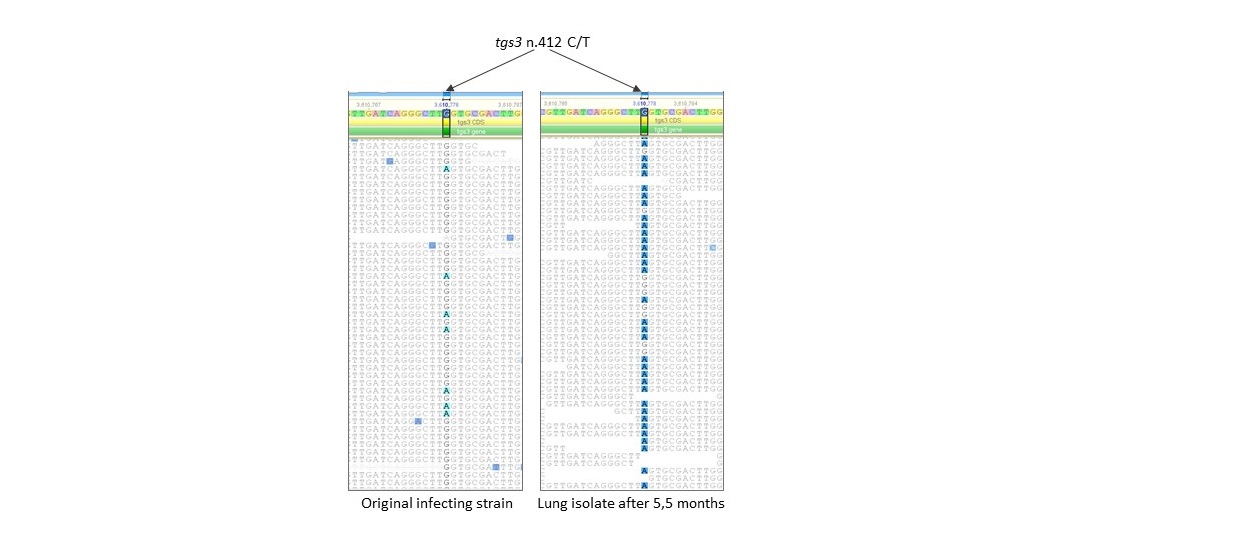
On August 7, 2025, the leading Russian science news portal PCR.NEWS published an article “Hypervirulent strain of M. tuberculosis is adapted to chemotherapy by inactivating an enzyme involved in synthesis of triacylglycerides". It describes a recent article coauthored by scientists from St. Petersburg Pasteur Institute and published in journal Microbial Pathogenesis (Elsevier).
The study showed that after several months of treatment of mice infected with a hypervirulent Mycobacterium tuberculosis strain, mycobacteria with a mutation inactivating the tgs3 gene (138Gln>Stop) were positively selected. After just two months of treatment with new antibiotics, the proportion of the mutant allele increased from 10 to 70%. The gene is associated with lipid metabolism and promotes dormancy, which ensures the persistence of the pathogen, while its inactivation leads to increased growth of mycobacteria. According to Dr Igor Mokrousov, PI of the project and head of laboratory of molecular epidemiology and evolutionary genetics, a decrease in tgs3 expression in isolates from mice infected with the hypervirulent and highly lethal Beijing 396 strain and receiving chemotherapy may reflect the adaptive strategy of this strain, based on increased growth, especially in the first months of selective pressure from antibiotic therapy.
Reference: Vinogradova T., et al. Long-term chemotherapy of C57BL/6 mice infected with epidemiologically important Mycobacterium tuberculosis strains and molecular insight into host-pathogen interplay // Microbial Pathogenesis. 2025; 207: 107919. DOI: 10.1016/j.micpath.2025.107919